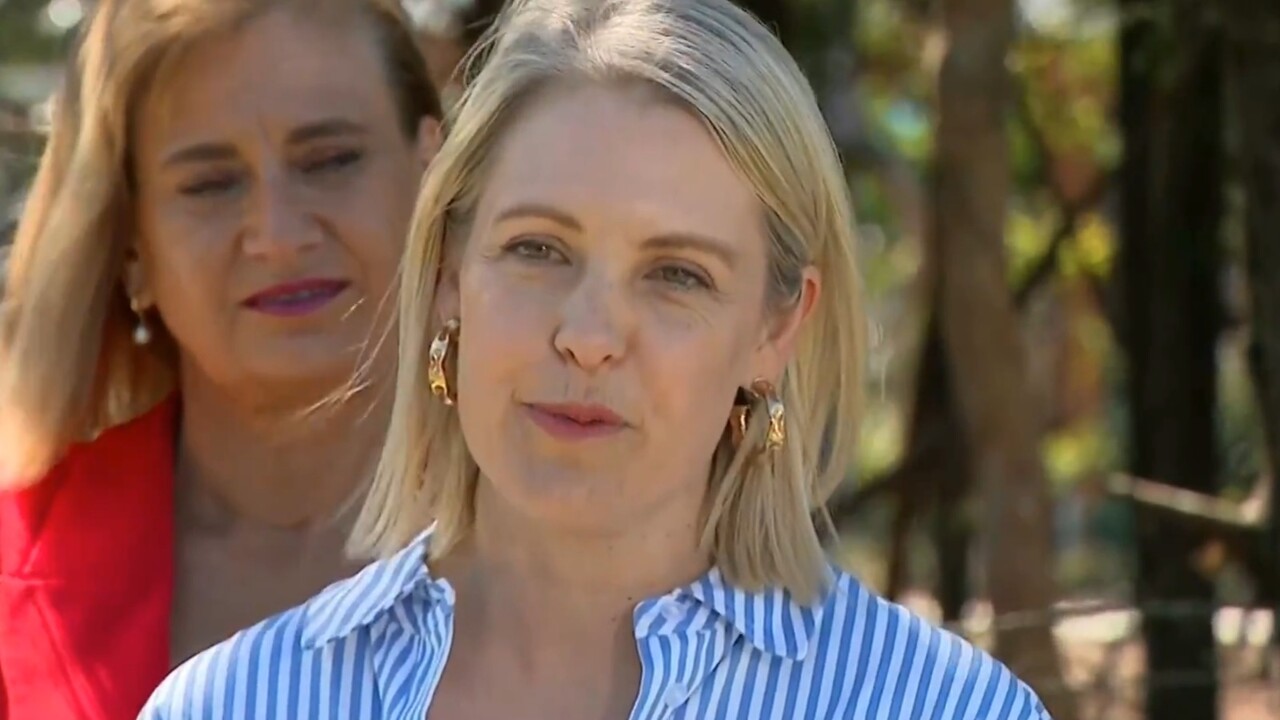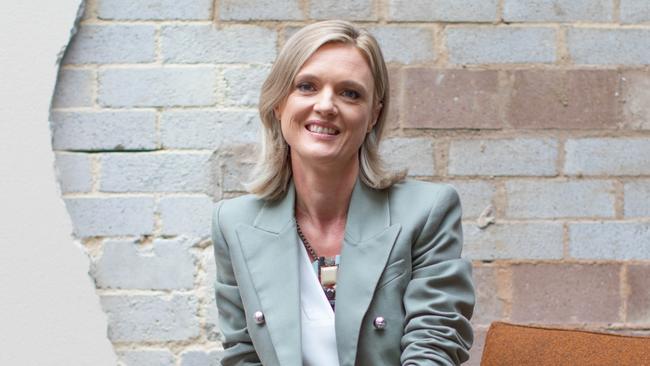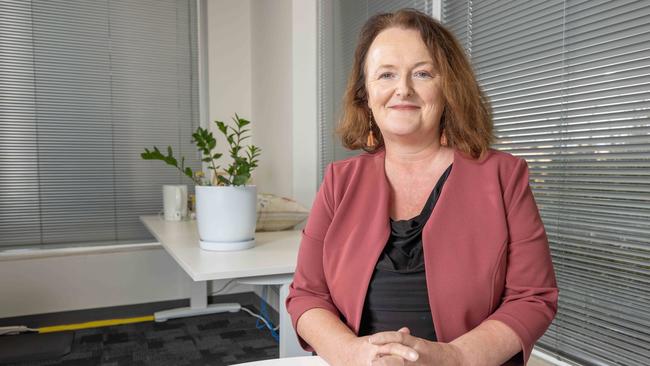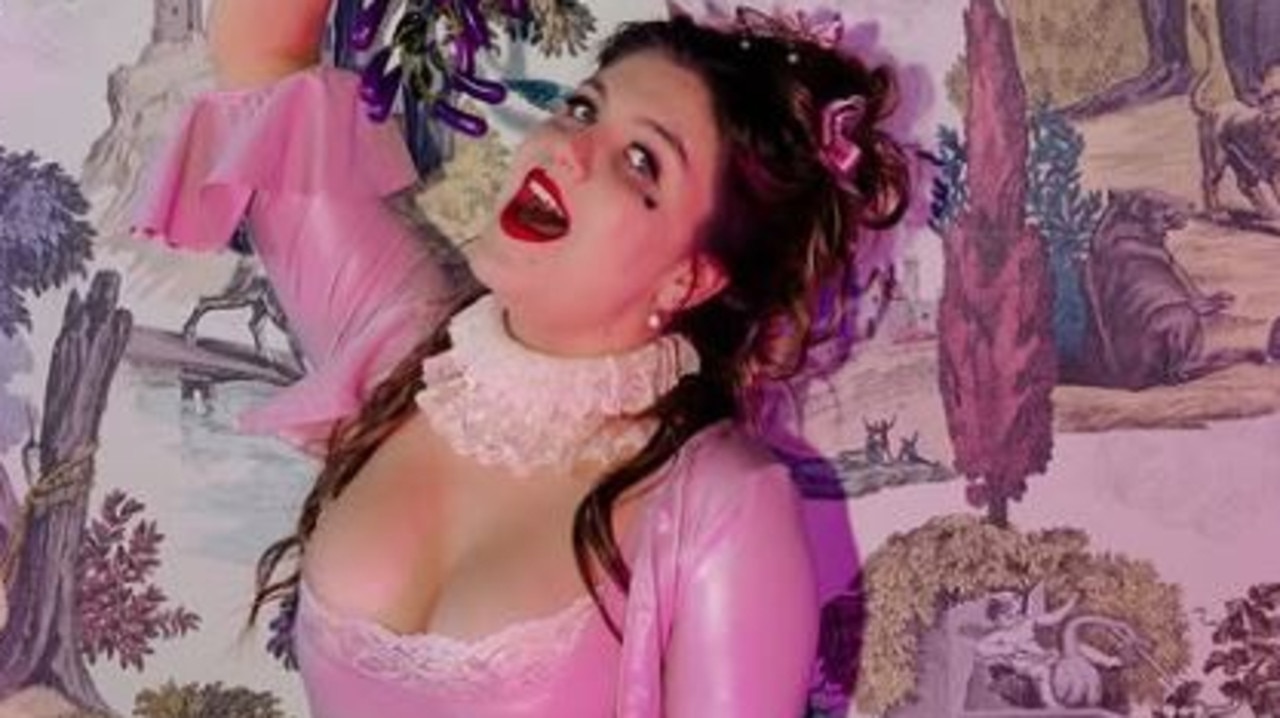Super women: The plan to tackle ‘risks and vulnerabilities’ of becoming a working mum
Women’s retirement funds are on average $84k behind their male peers. But one young Adelaide woman has a plan to protect herself. Find out how.

Lifestyle
Don't miss out on the headlines from Lifestyle. Followed categories will be added to My News.
Career woman Kathryn has a thought-provoking plan to limit the “risks and vulnerabilities” of stepping out of the workforce when she and her partner decide to have a baby.
The proposal to financially protect the future mum involves her partner, Tom, sacrificing some of his super to make voluntary contributions to her account while she is not earning a wage.
“We talk about it quite regularly, the impact that taking a year or longer for maternity leave would have on my career and my finances when I’m not earning or contributing to my super,” said the 33-year-old, who would like to become pregnant in the next few years.
“It’s about how I can protect myself and what sacrifices my partner, who would be an equal contributor to any child we might have, would have to make to have a family.
“It’s a result of our societal construct that the women bear the brunt of child-raising but it doesn’t have to be like that, we can share the load more evenly. We’re equal partners in everything we do. We divide things as equally as possible and I hope that becomes more of the norm.”

Super solutions
Kathryn’s solution is one of a raft of ideas Adelaide money coach Karen Eley suggests to her clients as a way of bridging the super gap that sees women’s funds lagging an average of $84,000 behind their male peers at retirement age.
Other ideas include considering higher-return, bigger-risk funds and making extra contributions, even if they are small.
“We tend to focus on the problems – the wage gap, the super gap. Those things are out of our control, what things are we in control of that we can change?” said Ms Eley, founder of Women Talking Finance in Mile End.
“Checking fees, having a look at investment options and going for higher risk if appropriate, consolidating super accounts and making contributions – even if they’re small, they’re still going to add up over time.”
Ms Eley said the gender divide was extreme in some cases – one of her clients had $800,000 less in superannuation than her estranged husband.
She said the 12 per cent gender wage gap was the biggest contributor to that chasm, but it was also fuelled by the fact that women took an average of five years out of the workforce – when they did not have an income or earn super – to care for children or elderly parents.
Tax concessions also generally favoured men, who earned bigger wages on average and whose greater super funds benefited most from compound interest.
“I’m so tired of this conversation about the gap between men and women,” said Ms Eley, who proposed federal super contributions – similar to the baby bonus – for stay-at-home carers.
“I’ve been in financial services for over 20 years and there’s been hardly any change.
“Change is so slow in this area and it’s got to come structurally from the government.”

Financial fightback
One of Ms Eley’s clients, lawyer Paula Davies, found herself miles behind financially when she split from her ex-husband, a medical specialist, nearly 20 years ago.
She said his super ballooned during their 10-year marriage but hers came to a standstill for at least five of those years as she interrupted her successful career to raise their two young sons. By the time they separated, he had twice as much in his account.
“I didn’t come out of the marriage with a strong foundation so I’ve had to rebuild,” said the 55-year-old, who has spent the past five years in “catch-up mode” and was now financially “comfortable”.

“My superannuation is about half what it should be. (It) was significantly impacted by a number of years not working while I was raising children, a number of years working less than what I would have been … moving around the countryside for his work.
“That’s about being socially conditioned to put his interests above mine in the expectation that in the long term it would be to our mutual benefit and, of course, it wasn’t.
“When you think about how many marriages end in divorce, it was not economically rational to do what I did.
“Somewhere along the line, I got the message that I didn’t matter or count – and he was more important than me,
“I think we underestimate the impact of divorce and some of the gendered roles we are still conditioned to take on. It had a big impact on my financial wellbeing.”
Ms Davies said she now felt a “responsibility to actually call this stuff out so that we do it differently”.
“I wouldn’t change what I’ve done, looking after my boys was very important to me, but I can change the messaging of how I value my time and effort and worth and model that.”
Top of the list
New Association of Superannuation Funds Australia chief executive Mary Delahunty has put the super gender gap at the “top of my to-do list”.
Ms Delahunty, who took over the reins two months ago, said the gaping hole between super sums, which left women earning an average 25 per cent less than men, was “persistent and annoying and something we shouldn’t put up with”.
“We have a really unfortunate situation in this country where we are prosperous and we have built a world-class system but these inequitable parts to it are really holding back the people that this sort of system should be helping the most.
“We need to address that.”
Ms Delahunty said the addition of superannuation to paid maternity leave, which takes effect in July next year, was a step forward.
Until now, it was the only form of commonly taken leave that did not attract super.
“It was astounding that wasn’t fixed sooner,” Ms Delahunty said.
She said another solution could be government-funded super contributions for stay-at-home women caring for children or the elderly.
“Really if we are as a country to move on the yawning gap between men’s and women’s retirement outcomes … that’s the right policy message – this is valuable service you’re giving to the country and it’s valued in this way,” she said.





